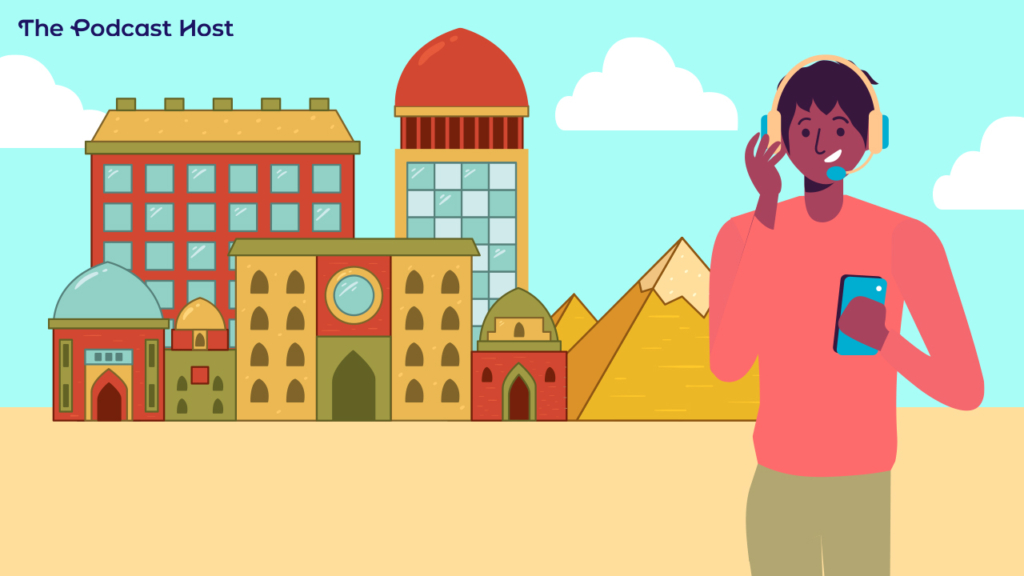6 Key Lessons from Africa Podcast Day 2025
Africa Podcast Day 2025 was a vibrant celebration of storytelling, creativity, and industry growth. It brought together podcasters, voice artists, and media professionals across the continent.
Organized by Afripods and APVA, the event commenced on February 12th. Insightful discussions, talks, and masterclasses from various industry experts highlighted the evolving landscape of podcasting in Africa. Here are six key lessons from Africa Podcast Day 2025’s celebration.
1. Observance Days Elevate Creatives’ Visibility in Africa
Observance days like Africa Podcast Day and Africa Voiceover Day are more than symbolic celebrations. They boost visibility, foster community, and offer career growth opportunities.
Speaking on APVA’s A and A special podcast, industry leaders Gathoni Ngumba and Chilu Lemba emphasized that these days provide structured networking, learning resources, and talent discovery platforms.
Gathoni, drawing from her experience as Afripods’ Community Manager, shared how initiatives like Afripod Meets help podcasters connect and gain exposure. Similarly, Chilu highlighted how leveraging hashtags such as #AfricaPodcastDay can significantly enhance discoverability, leading to new collaborations and career opportunities.
Beyond celebration, these observance days strategically empower African creatives by offering education, industry networking, and increased professional visibility.
2. Podcasting Is Shaping African Storytelling
Podcasting has become a vital tool for African storytellers, offering a low-barrier platform to shape narratives without traditional media gatekeepers. Unlike conventional media, podcasts embrace personality-driven content, making stories more relatable and engaging.
In a panel discussion, Impactful Narratives & The Future of African Podcasting, Ghanaian podcasters Joseph Nti of Sincerely Accra and Afi of Stay by Plan noted audiences resonate with podcasts that maintain relatability, indigenous accents, and mannerisms.
Gathoni echoed this on the A and A Podcast, noting that the beauty of podcasting lies in its lack of rigid rules. She emphasized that podcasting allows creators to tell stories in their own voices and on their own terms, without media restrictions.
Moreover, external and internal media shape Africa’s narratives, according to Loubna Mckour’s 2022 report, Conflict Narratives in The News and Digital Spaces. However, podcasters change this by sharing authentic stories that amplify African voices and challenge incomplete or biased portrayals.
Dzifa of Sankasa Podcast emphasized that podcasters should prioritize facts over opinions.
3. TikTok is Emerging as a Podcasting Channel
As African podcasting expands beyond audio-only formats, TikTok is emerging as a key distribution platform. Younger audiences prefer video-based content, and podcasters use TikTok clips to drive traffic to full episodes.
However, Gathoni highlighted a growing trend where African Gen Z podcasters use the platform’s short-form storytelling tools for increased engagement.
Given that TikTok’s algorithm boosts organic discoverability, while app features like monetization programs open doors for new revenue streams and engagement, this is a new opportunity for African Podcasters to explore.
While Spotify remains dominant, TikTok’s rise signals a shift in how African podcasts reach and engage audiences in a rapidly evolving digital landscape.
4. Podcast Intelligence: Africa’s Powerful Tool for Podcasting Influence
Hosted by Afripods, Rodney Omeokachie, host of The Young God podcast, delivered a masterclass on Podcast Intelligence. He coined this concept to describe the intentional and strategic process of crafting an immersive audio experience.
He emphasized that podcasters must go beyond simply recording conversations. Instead, they must think critically about their strengths as content creators, the cultural and social context in which they operate, and the demographics and psychographics of their audience.
Moreover, they must think of the broader industry trends shaping digital storytelling. This structured approach ensures that every episode delivers maximum impact and engages listeners.
Omeokachie also noted that the storyteller is the most powerful person in the world. This is because storytelling shapes history and culture regarding how societies remember and interpret events. It also shapes business and marketing in terms of how brands connect with consumers.
For African podcasters, mastering the art of storytelling is key to growing an audience and monetizing their craft. This means embracing their role as narrators and ensuring that every word spoken carries intent and meaning, Omeokachie noted.
Omeokachie’s masterclass emphasized the importance of authenticity in storytelling. He urged podcasters to master their own stories before attempting to tell others’. Podcasters’ unique perspectives, experiences, and worldviews set their content apart.
5. Institutions Are Enhancing African Podcasting Industry Growth
Gathoni explained that one of the major gaps in African podcasting is access to industry-specific knowledge. To support creatives’ growth, African audio institutions focus on their communities’ needs and use observance days to bridge knowledge gaps.
Organizations like Afripods, Semabox, Baraza Media Lab, and APVA ensure that such days deliver real value to their communities. They have been instrumental in connecting African podcasters with industry leaders, facilitating valuable discussions, and making knowledge more accessible.
Gathoni noted that by providing direct access to industry experts, Afripods creates networking opportunities between podcasters across different African countries. These podcasters can meet, collaborate, and discuss industry trends.

Moreover, engaging in podcasting communities can lead to increased discoverability and new opportunities. Whether through co-hosting episodes, cross-promotions, or industry partnerships, working together is essential for the long-term success of Africa’s podcasting industry.
This year’s Africa Podcast Day showcased these organizations’ dedication to community, collaboration, and knowledge sharing. Podcasters In Africa and the Diaspora were requested to join in the celebration of Africa Podcast Day. Podcasters were requested to share videos about their podcasts and the day’s celebrations with hashtags on Instagram. This boosted visibility and fostered community and networking efforts for the audio industry.
6. The Zimbabwean Podcast Landscape: Challenges and Triumphs
Zimbabwean podcasters, including 2 Broke Twimbos, Black and Forth, and 6 Ft Weights, shared insights on the challenges of growing and monetizing their shows in The Zimbabwean Podcast Landcape panel discussion.
Danny and Phil of 2 Broke Twimbos noted that securing advertisers has been difficult, with most successful advertising sponsorships coming from the diaspora. King Kandoro of Black and Forth Podcast added that while some advertisers engage, many consider podcast ad rates too high. As a result, creators rely on crowdfunding revenue.
Meanwhile, the podcasters from 6 Ft Weights, Thabo and Sana shared their unique struggles. They spoke candidly about the challenges of balancing time and uncensored content. However, they expressed hope that by restructuring their workflow and committing more time and resources, they could transform their podcast into a more lucrative venture.
Despite these challenges, Zimbabwean podcasters remain passionate, leveraging creative solutions to sustain their platforms while pushing for industry growth.
Final Thoughts: The Future
Two elements stand out in the forecast for Africa’s podcast market: participation and technology.
The Podcast Market in Africa
Africa’s podcasting industry is on an upward trajectory, with increasing creator participation, expanding monetization opportunities, and growing global recognition.
Countries like South Africa, Nigeria, and Kenya continue to lead the market. But other nations, including Ghana, Zambia, Egypt, Zimbabwe, and many others, experience steady growth.
Research from Statista shows that the African podcast market is projected to grow by 7.88% annually, reaching $18.78 million by 2027.
This growth is driven by Africa’s young and digitally savvy population, combined with increased access to smartphones and internet accessibility, as well as the reshaped narratives about Africa and Africans.
Technology and Innovation
Technology is playing a crucial role in this expansion. Innovations like Afripods’ Broadcast-to-Podcast (B2P) technology have transformed how content is created, distributed, and monetized.
The technology proved successful, with an 895% increase in streams for participating radio stations and networks in 6 months in 2023. “Afripods B2P currently has over 110 radio stations across eight African countries producing content in more than ten languages with an average monthly increase of 112% streams for stations.”
Also, 2024 discussions by Baraza Media Lab highlighted several key trends in African podcasting.
YouTube has become a major platform for podcast distribution in Africa. However, creators were encouraged to make their content available across multiple platforms, including Spotify and Afripods, to maximize reach.
Additionally, there has been an increase in local podcasts. “More creators produce podcasts in local languages. Contrary to limiting your audience, this approach could attract a strong following from diaspora communities looking to reconnect with life back home,” Baraza Media Lab noted.
Lastly, African podcasters have also embraced Artificial Intelligence (AI). Through advancements in editing, captioning, and even content generation, AI is improving the productivity of creators. However, it also presents challenges, including the potential spread of AI-generated misinformation.
What’s Next for Africa’s Podcast Landscape?
Africa Podcast Day 2025 reinforced the immense potential of the continent’s podcasting and voiceover industries. The key lessons from this event will shape the future of African audio content. As such, aspiring and seasoned podcasters and voice artists alike are encouraged to own their stories, amplify their voices, and seize the opportunities in Africa’s growing podcasting landscape.
Looking ahead, African podcasters must focus on content innovation, strategic monetization, and cross-platform distribution to maximize reach. With continued investment, collaboration, and strategic partnerships, the industry is set to become a powerful force in global media.

